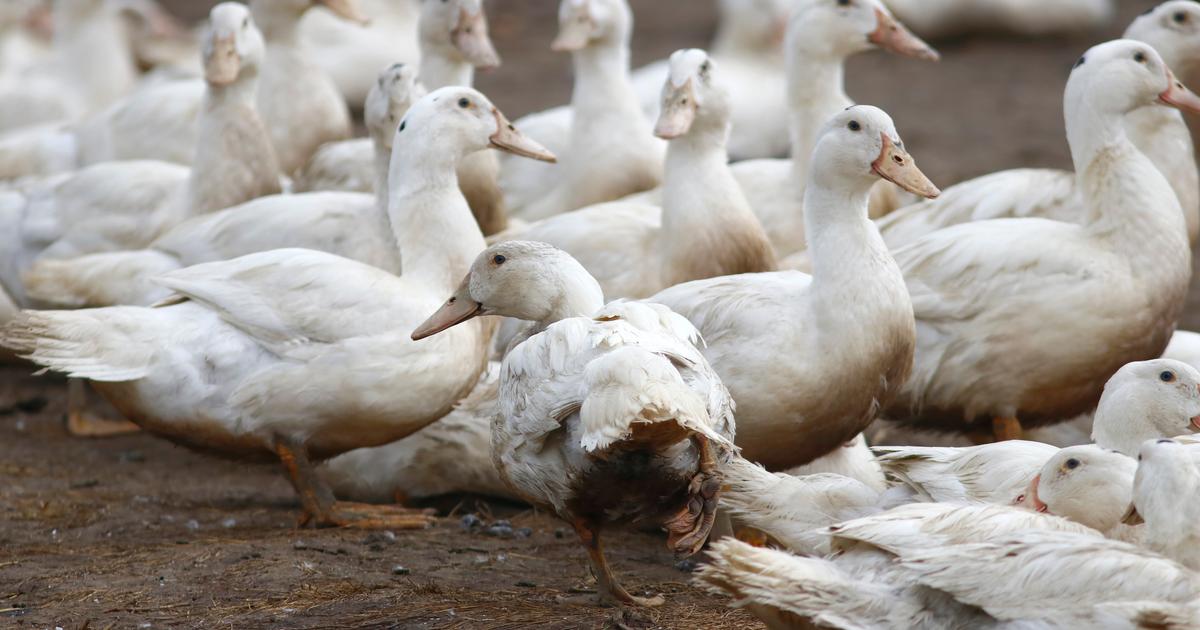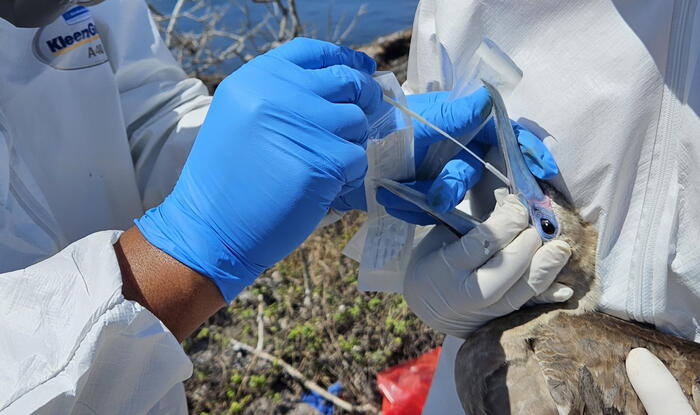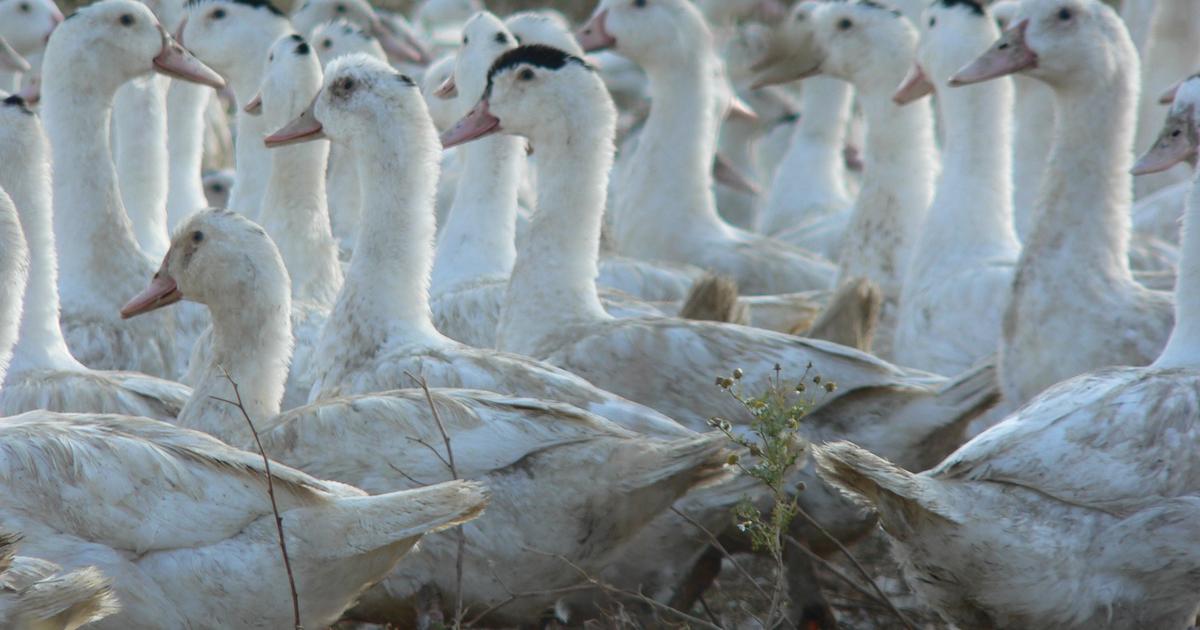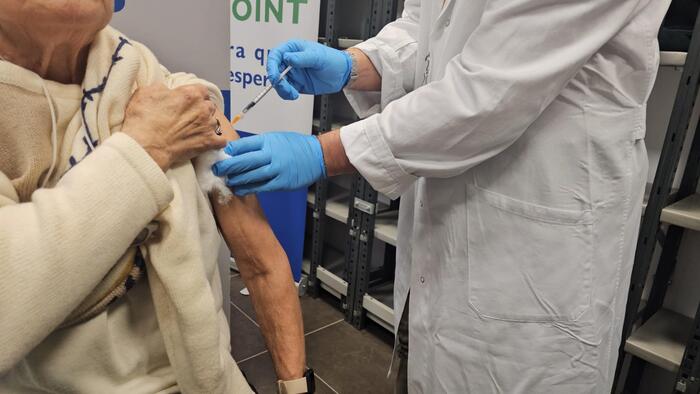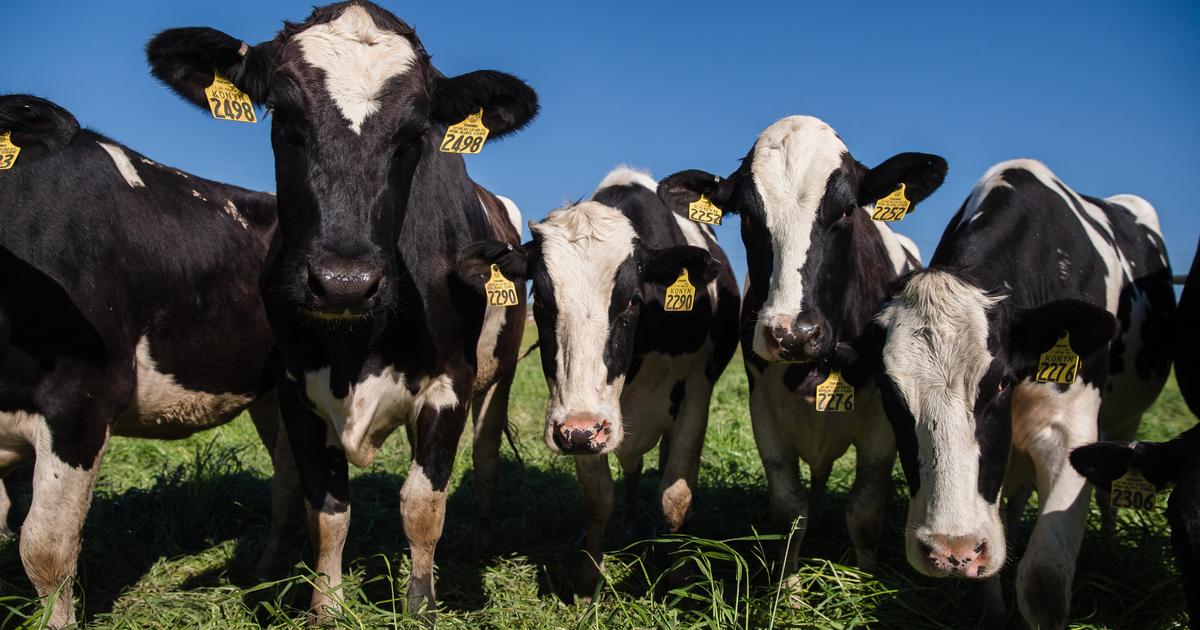Avian influenza: Summer wave threatens animal populations in Lower Saxony
Created: 09/08/2022, 20:03
Turkeys, chickens and geese have had to be killed in Lower Saxony since July because of avian influenza.
A summer wave of the H5N1 virus scares owners and breeders.
Hanover – Fear for poultry: The highly contagious avian influenza is spreading in Lower Saxony and terrifying animal owners.
According to the Ministry of Agriculture in Hanover, there have been ten outbreaks of the infectious disease in seven districts nationwide since July 2022, most recently in the county of Bentheim.
In all ten cases, the H5N1 subtype virus was detected in turkeys and laying hens.
According to the minister, a total of around 616,000 animals have had to be killed since July 1, 2022 - more than during the entire epidemic last autumn and winter.
At that time, a total of around 510,000 animals were killed, as reported by hna.de.
Avian influenza summer wave also threatens animal populations in Lower Saxony
A summer wave of avian influenza threatens livestock in Lower Saxony.
Holders in Lower Saxony fear for their poultry.
(Iconic image) © Julian Stratenschulte
According to the ministry, the cost of avian influenza in 2021/2022 was a good 9.8 million euros.
"Unlike in all the years before, the avian influenza virus did not disappear with the migratory birds for the first time in the summer of 2021, but remained in the native wild birds," explained Lower Saxony's Minister of Agriculture Barbara Otte-Kinast on Wednesday (September 7th, 2022) in the agricultural committee of the state parliament.
Avian influenza events have taken on a new and very worrying quality.
Lower Saxony's Agriculture Minister Barbara Otte-Kinast (CDU)
The breeding colonies of seabirds on the North Sea and Baltic Sea have suffered a massive, existence-threatening collapse as a result of the bird flu.
"This means that the avian influenza events have taken on a new, very worrying quality," said the CDU politician.
Lower Saxony's Minister for Food, Agriculture and Consumer Protection Barbara Otte-Kinast (CDU).
© Friso Gentsch/dpa/archive image
The industry is very concerned: "The situation is very serious and the fear of poultry farmers is very great," said Friedrich-Otto Ripke, President of the Central Association of the German Poultry Industry.
Despite the high standard of biosecurity measures, the virus cannot be kept out of the stables.
Avian influenza in Lower Saxony: Vaccine against virus H5N1 urgently needed
In Lower Saxony, this applies in particular to companies near bodies of water such as Steinhuder Meer, Dümmer or the Elbe.
An effective vaccine against the virus is urgently needed.
Otte-Kinast also advocated the development of a vaccine.
Another measure is the "reduction of the density of commercial poultry farming".
The agricultural policy spokeswoman for the Greens parliamentary group in the state parliament, Miriam Staudte, said: "The problem is not the high density of wild birds, but the high density of poultry farms in some problem areas." The main factor in the transmission of animal diseases is still humans.
A sign saying "Avian influenza restricted area".
© Stefan Sauer/dpa-Zentralbild/dpa/Symbolbild
According to the Lower Saxony Ministry of Agriculture, more than 44 million animals had to be culled across Europe between September 2021 and June 2022 due to outbreaks of disease in poultry farms.
According to the Robert Koch Institute (RKI), the transmission of bird flu viruses from animals to humans is not particularly effective.
The pathogens are not particularly infectious for humans.
(Raphael Digiacomo, with dpa material)
The animal protection organization Peta has reported to an Oldenburg group because of the painful fattening conditions of turkeys.
African swine fever (ASF) has now also reached Lower Saxony: Questions and answers about the animal disease.
The poisonous Nosferatu spider is now also spreading in Lower Saxony.
Avian flu: Poultry in great danger
Bird flu is a viral disease also known as avian influenza.
The term derives from the Latin word avis for bird.
According to the Tropical Institute, the influenza A viruses (H5N1, H5N8, H7N9) primarily affect birds – especially poultry such as turkeys or chickens.
Veterinary medicine divides bird flu viruses into less pathogenic (low pathogenic) and very severely pathogenic (highly pathogenic) strains.
The highly pathogenic viruses of the subtypes H5 and H7 cause severe damage to livestock in poultry.
A large proportion of the infected poultry die from the disease, which explains the term "bird pest".
Influenza A viruses can also cause illnesses in humans.
These are comparatively rare, since bird flu is not particularly contagious for humans.
However, the disease can take a severe course in humans and, in extreme cases, even lead to death.
In 2005, the H5N1 bird flu virus killed several hundred people.


